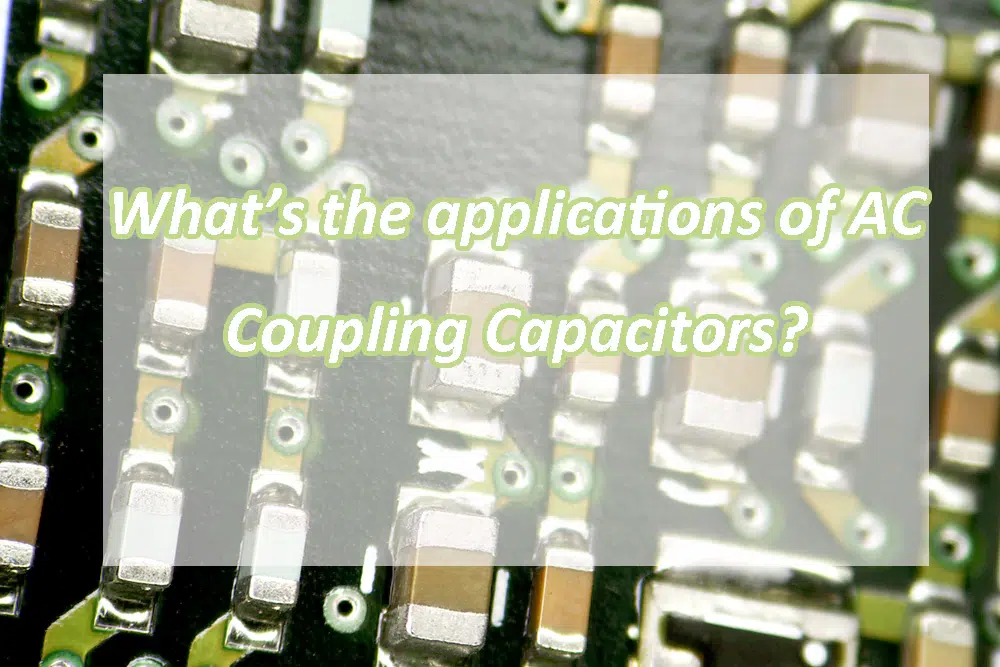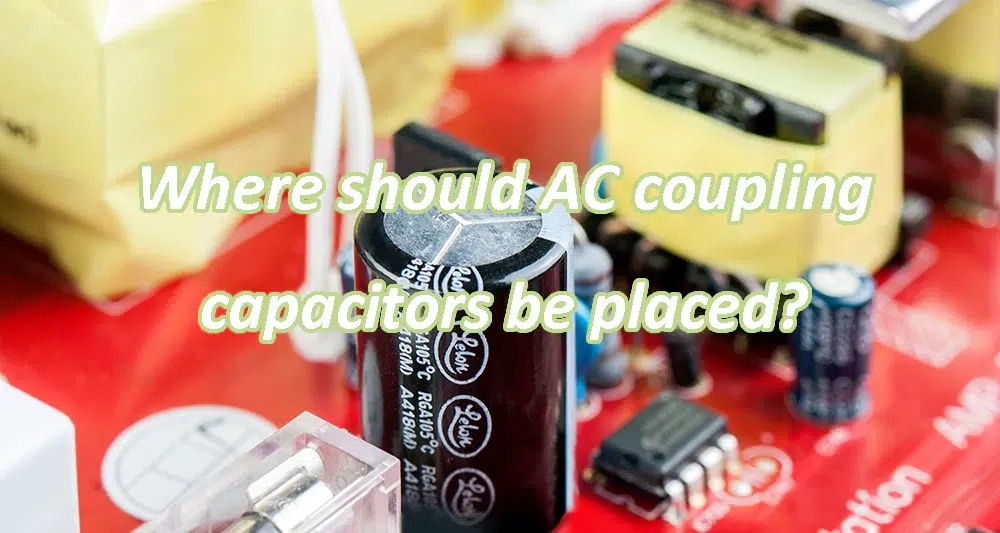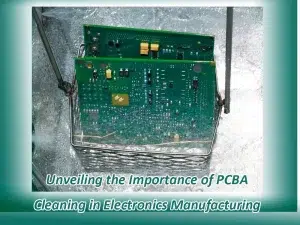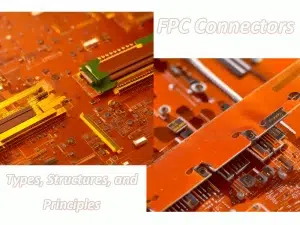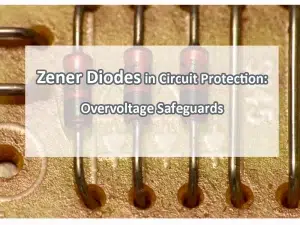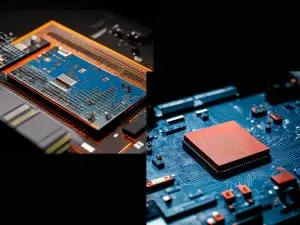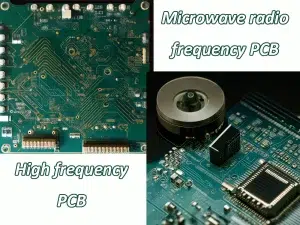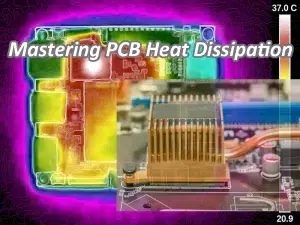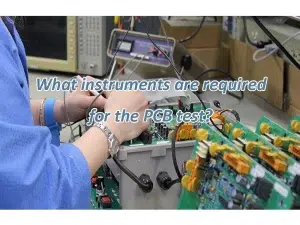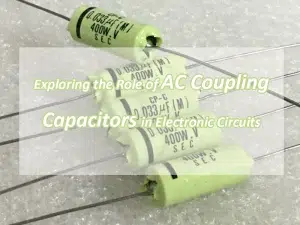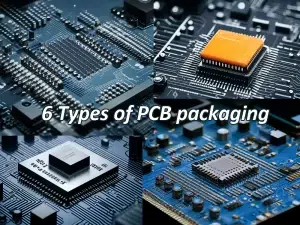In the realm of electronics, the seamless transmission of signals is paramount for the functionality and reliability of circuits. One crucial component that facilitates this transmission is the AC coupling capacitor. Despite its seemingly simple nature, the AC coupling capacitor plays a pivotal role in removing DC offset and preserving signal integrity in a variety of applications. In this article, we’ll delve into the workings of AC coupling capacitors, their applications, and how they contribute to the performance of electronic circuits.
What does an AC coupling capacitor do?
AC coupling capacitors, also known as blocking capacitors or coupling capacitors, are passive electronic components designed to pass alternating current (AC) signals while blocking direct current (DC) signals. They consist of two conductive plates separated by a dielectric material, typically made of ceramic, tantalum, or electrolytic material. When used in series with a circuit, AC coupling capacitors allow AC signals to pass through while preventing any DC bias from interfering with the signal.
What’s the working principle of AC coupling capacitor?
The working principle of AC coupling capacitors is based on their ability to charge and discharge rapidly in response to changes in the input signal. During the positive half-cycle of the AC signal, the capacitor charges, allowing the AC component of the signal to pass through. Conversely, during the negative half-cycle, the capacitor discharges, effectively blocking any DC offset present in the signal. This process ensures that only the AC component of the signal is transmitted to the next stage of the circuit.
What’s the applications of AC Coupling Capacitors?
AC coupling capacitors find widespread use in various electronic circuits and systems where the removal of DC bias is necessary for proper signal transmission and processing. Some common applications include:
Audio Amplification: In audio circuits, AC coupling capacitors are used to remove any DC offset from audio signals before they are amplified by audio amplifiers. This prevents speaker damage and ensures clear, distortion-free audio output.
Data Transmission: In data transmission circuits, AC coupling capacitors help maintain signal integrity by removing any DC offset that may accumulate during transmission. This ensures reliable data transfer without distortion or interference.
Video Processing: AC coupling capacitors are also used in video circuits to remove any DC bias from video signals before processing or display. This ensures accurate color reproduction and image clarity in video applications.
Sensor Interfaces: In sensor interfacing circuits, AC coupling capacitors help remove any DC offset from sensor outputs before they are processed by microcontrollers or other digital circuits. This ensures accurate sensor readings and reliable system operation.
Where should AC coupling capacitors be placed?
AC coupling capacitors are typically placed at specific points within electronic circuits to achieve their intended function of blocking DC offset while allowing AC signals to pass through. The placement of AC coupling capacitors depends on the circuit topology and the specific application requirements. Here are some common locations where AC coupling capacitors are placed:
Input Stage:
AC coupling capacitors are often placed at the input stage of a circuit to remove any DC bias from the input signal. For example, in audio amplifiers, AC coupling capacitors are placed at the input to block any DC offset from audio sources such as microphones or line-level inputs.
Output Stage:
Similarly, AC coupling capacitors may be placed at the output stage of a circuit to remove any DC bias from the output signal. In audio amplifiers, for instance, AC coupling capacitors are placed at the output to block any DC offset before the signal is sent to speakers or headphones.
Between Stages:
In multi-stage amplifier or signal processing circuits, AC coupling capacitors are placed between stages to isolate DC bias between different sections of the circuit. This prevents DC offset from one stage from affecting the bias of subsequent stages.
Signal Lines:
AC coupling capacitors may also be placed in series with signal lines, such as data or video transmission lines, to remove any DC bias that may accumulate during transmission. This ensures proper signal integrity and prevents distortion or interference in the transmitted signal.
Biasing Circuits:
In some circuits, AC coupling capacitors are used in biasing circuits to set the DC operating point of active components such as transistors or operational amplifiers. These capacitors help block any DC offset from the input or output of biasing circuits, ensuring stable and reliable operation.
Feedback Loops:
AC coupling capacitors may be used in feedback loops of amplifier circuits to block DC bias from affecting the feedback network. This helps maintain stability and prevent DC drift in the amplifier’s gain or frequency response.

What is the difference between AC coupling capacitor and DC blocking capacitor?
AC coupling capacitors and DC blocking capacitors are terms often used interchangeably to refer to capacitors used to remove DC offset from a signal while allowing AC signals to pass through. However, there can be a subtle difference in the context in which these terms are used.
AC Coupling Capacitor:
An AC coupling capacitor is a capacitor specifically designed to pass alternating current (AC) signals while blocking direct current (DC) signals. It is typically used in electronic circuits to remove any DC bias or offset from a signal before it is further processed or amplified. AC coupling capacitors are commonly used in audio amplifiers, data transmission circuits, video processing circuits, and sensor interfacing circuits.
DC Blocking Capacitor:
A DC blocking capacitor, on the other hand, is a capacitor used to block the passage of direct current (DC) while allowing alternating current (AC) signals to pass through. This term is often used in power supply circuits or signal conditioning circuits where it is necessary to remove any DC component from a signal. DC blocking capacitors are commonly used in coupling capacitors for power supply decoupling, signal isolation, and high-pass filtering applications.
In summary, while both AC coupling capacitors and DC blocking capacitors serve the same fundamental purpose of removing DC offset from a signal, the term “AC coupling capacitor” is more commonly used in the context of signal processing circuits, while “DC blocking capacitor” may be used more broadly in various electronic applications, including power supply and signal conditioning circuits.
Conclusion
In conclusion, AC coupling capacitors are essential components in electronic circuits where the removal of DC bias is necessary to ensure proper signal transmission and processing. Their ability to selectively pass AC signals while blocking DC voltage makes them invaluable in a wide range of applications, including audio amplification, data transmission, video processing, and sensor interfacing. By understanding the role of AC coupling capacitors and their applications, engineers and designers can optimize circuit performance and enhance the reliability of electronic systems.
AC coupling capacitors, also known as blocking capacitors or coupling capacitors, are passive electronic components designed to pass alternating current (AC) signals while blocking direct current (DC) signals.
The working principle of AC coupling capacitors is based on their ability to charge and discharge rapidly in response to changes in the input signal.
Audio Amplification
Data Transmission
Video Processing
Sensor Interfaces

